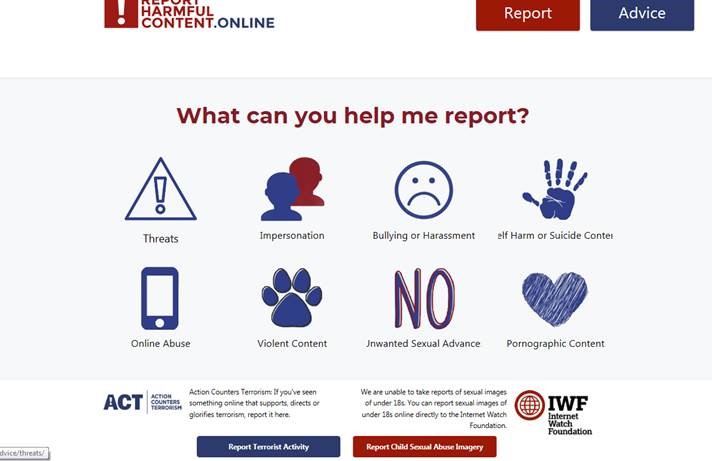Online Safety For Students
Staying Safe Online
It’s not always easy to know what’s safe online and what’s not. Our advice can help you to keep safe and to know what to do when things go wrong.
There are lots of fun and interesting things you can do on the internet. And it can be a great way to stay in touch with friends. But it’s important to understand how to stay safe online.
Sometimes people will try to trick you into clicking dangerous links or sharing things about yourself. Or something you’ve shared might be used to bully or frighten you.
Top Tips:
- Think before you post
Don’t upload or share anything you wouldn’t want your parents, carers, teachers or future employers seeing. Once you post something, you lose control of it, especially if someone else screenshots or shares it.
- Don’t share personal details
Keep things like your address, phone number, full name, school and date of birth private, and check what people can see in your privacy settings. Remember that people can use small clues like a school logo in a photo to find out a lot about you.
- Watch out for phishing and scams
Phishing is when someone tries to trick you into giving them information, like your password. Someone might also try to trick you by saying they can make you famous or that they’re from a talent agency. Never click links from emails or messages that ask you to log in or share your details, even if you think they might be genuine. If you’re asked to log into a website, go to the app or site directly instead.
- Think about who you’re talking to
There are lots of ways that people try to trick you into trusting them online. Even if you like and trust someone you’ve met online, never share personal information with them like your address, full name, or where you go to school.
- Keep your device secure
Make sure that you’re keeping your information and device secure.
- Never give out your password
You should never give out your password or log-in information. Make sure you pick strong, easy to remember passwords.
- Cover your webcam
Some viruses will let someone access your webcam without you knowing, so make sure you cover your webcam whenever you’re not using it.
5 ways to get support if things go wrong
- Talk to someone you trust like an adult, or you can always talk to Childline
- Report bullying and abuse directly to the website or app
- Delete things you’ve shared that you’re worried about, or find ways to hide them
- Tell the police by making a report to CEOP if someone is threatening or blackmailing you
- Plan for the future and change your privacy settings so it doesn’t happen again
If you are worried about your own or a friends safety online, if they are involved in inappropriate contact with someone online you can report it directly to CEOP using this button:
You can also call Childline on: 0800 1111 to talk to someone who can help.
Advice taken from childnet.
Reporting Harmful Content
There is a new tool for reporting harmful content online. The site has been created by the UK Safer Internet Centre and South West Grid for Learning. To report harmful content please click on the 'Report Harmful Content' text below


